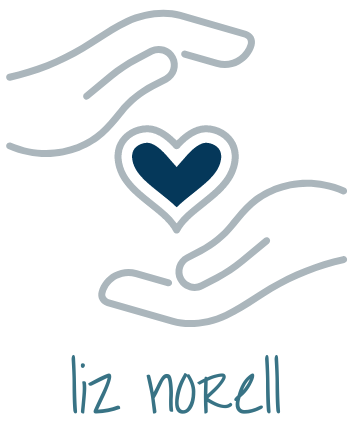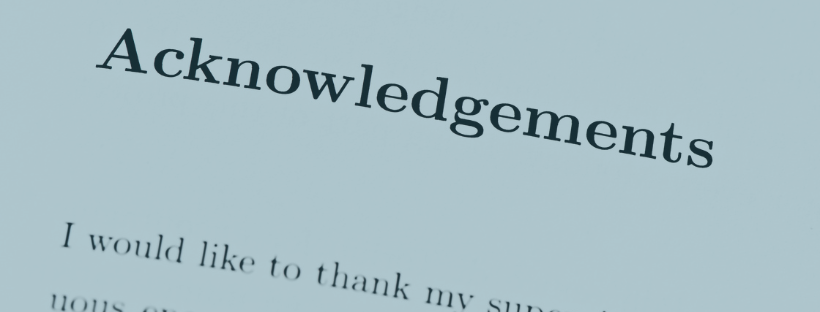In fall 2002, I defended my master’s thesis at the University of Arkansas’s journalism MA program. I was one of the only — perhaps to this day THE SINGULAR ONLY — person to choose to complete 12 graduate hours in educational technology en route to my MA Journalism degree.
Because I’m participating in Magna’s ChatGPT webinar tomorrow, and because I wanted to talk about moral panics around educational innovation in education, I pulled up my old thesis to read my chapters on educational history and ed tech history. Shockingly, they held up pretty well.
Below, I’m proud to offer the acknowledgements — because I love writing and reading acknowledgements; they always burst with self-awareness and community spirit! — and I’ve also linked the PDF of my full thesis, in case you want to read it. (And I’m aware — probably nobody will. That’s ok!)
People often ask me, “How long have you been working on your thesis?” My response, throughout the thesis-writing process, has been, “a lifetime.” Most people thought I was joking, but indeed I do feel I’ve been preparing to write this thesis since I became cognizant of the world around me. Learning has been the focus of my everyday life. Once a computer became part of that everyday life, I began to wonder how a machine could affect learning. It took me many years to formulate the questions I wanted to answer, many years of thinking about the machines that have become so pervasive in our lives today, to arrive at the topic of this thesis, but once the topic was determined, the writing of the thesis has been, if not fun, quite fulfilling.
This project got its start about six years ago. By little more than a fluke, as a college freshman I took what would become a pivotal course in my life. It was an upper-level class in computer literacy on the Macintosh, housed in the graduate school of education. Most of the students in the evening class were teachers trying to understand Macs so they could use the computer in their classes. I was in the class because, as a longtime PC user, I wanted to feel more at ease on the Mac. Picking up new technology has always come easily to me, and by the fourth week of the course, I was mentoring the teachers seated near me in the class on how to improve their Power Point presentations.
It has always struck me as ironic that a class I added at the last minute would inspire me to think more on the role of computers in education — something that, until that moment, I hadn’t quite recognized as an interest of mine. Personally, I had never experienced computers in education, per se; my high school library had a handful of computers available for database searches, but they were not connected to the Internet — we didn’t have Internet access in my hometown then — and it never occurred to me the computer could be anything more than an easier way to search the Reader’s Guide to Periodical Literature. Now, high school students’ lives are so dependent on technology, with cell phones, instant messaging and e-mail everyday parts of their lives. My mother used to yell at me for talking on the phone for so long; kids these days carry on 20 (or more) conversations with their friends at once on a computer that, often, doesn’t occupy the phone line at all. To think these changes could occur in less than a decade amazes me.
I threw myself into articles and books that looked at the ways in which computers were changing our lives. I researched without intending ever to do anything more than answer my own questions: How do people learn? Does technology really help learning occur better or more completely? Are schools wasting money on all these computers? What methods of teaching work best? About the time I was a junior, I realized all this research would come to something; as a senior, I would be expected to write a final research paper. Suddenly, my research had an ultimate goal, and by the time I reached my last semester, I was ready to start writing the paper I had been cultivating for so long.
Anticipation turned to disappointment when I was told my final research paper topic had been predetermined by the professor of that semester’s senior seminar, and that my final paper could not exceed 15 pages. I couldn’t capture even a portion of my thoughts in 15 pages, and with resignation I accepted — though not happily — the fact that my paper would not be written. The magazine and newspaper clippings I had been saving were put into a box, and the subject was locked away until I started graduate school two years later. Writing this thesis has brought a sense of closure to the questions that have plagued me over the years, and I recognize my good fortune at choosing a topic with which I have not grown bored.
In the six years it took for this thesis to morph from an idea to its final form, a diverse and far-flung group of people served to both encourage and thwart my attempts to put my ideas to paper. For both the encouragement and the disinterest, I am equally grateful. I know now that, had I been allowed to write this paper for my undergraduate senior paper, my professor would have never made the deadline for
turning in her final grades, and I might have collapsed from exhaustion in trying to put it together in the span of only a few weeks. If my family members and friends far and wide hadn’t constantly asked how my thesis was going, I may never have found the determination to finish it.
While my family has been unwavering in their support of my writing, the confidence to pursue it seriously was largely inspired by three mentors during my years as a young student, three people who recognized a talent in me I couldn’t see for myself and who encouraged me to pursue it further. Two were my high school English teachers, Vicki Brantly and Susan Bergman, who are still teaching. To say these two women were enthusiastic in their support would be a gross understatement. Before I stepped foot into their classrooms, I would have never thought I had the capacity to write more than 10 pages on any subject. They recognized within my writing a strong voice and a maturity I never could have recognized on my own. Before I met them, the idea of writing for a living was hardly my intention; thanks to their encouragement, I cannot imagine a life for myself that doesn’t include some kind of writing.
The third mentor was my first journalism professor, a man named Charles Puffenbarger, known to all as “Puff.” A professor at the George Washington University, Puff singled me out of an introductory reporting class of 15 and lavished a level of attention upon me I wasn’t sure was deserved. Puff never asked me what I wanted to do; he insisted I would be a wonderful writer and there was nothing more to discuss. As his student, I found the confidence to excel in an environment that intimidated me; as his student, I succeeded in ways I could not have without him. Puff was a very special man and touched the lives of many students during his time in the industry. That he believed in me meant the world to me, and when he died I knew I had lost my best supporter.
Others have been vocal about their high expectations for me, and that support has always given me the courage to challenge myself and better myself. My paternal grandmother, for whom I am named, died when I was in my early teens, but her memory has long been a source of inspiration for me. She was her high school’s valedictorian but never had the opportunity to go to college, and throughout my education, I have always felt an acute sense of appreciation for the opportunities I have had and the pride I know she would feel if she could see me today. A law professor of mine in the GWU Honors Program, Jill Kasle, pushed me to do my best always, saying to me, “I know you can do better than this. Just fix it.” To this day, she remains steadfast in her belief that one day I will make a “fabulous lawyer.” During the two courses I took with her, my critical-thinking skills were finely honed, and whether or not I fulfill my destiny as a fabulous lawyer, those skills are ones I value greatly.
It is to my parents, however, that I feel I owe the most. They have spent their lives telling me I can do anything I set my mind to, and after years of wondering if it was true, I look at this thesis and believe it is. I have accomplished what, at times, seemed too large to conceive. My parents are extraordinary people, and it is my greatest hope that I have inherited some of their exceptional generosity, faith and love. They may not have always understood me or agreed with me, but they have supported me unconditionally. Against my pleas to the contrary, they gave me a brother who has become a close friend and ally in life. My family means the world to me, and I would not be half the person I am had it not been for them.
If I learned anything about myself in writing this thesis, it is that in misery, my procrastination always wins. My family and a close network of friends, from those who were only barely cognizant of my thesis to those who asked after it weekly, are the people who kept my life filled with happiness. With deep gratitude I thank Scott, Edward, Eric, Erbey, Loretta, AnnaLisa, Katherine and Tommy for always believing in me and expecting great things.




